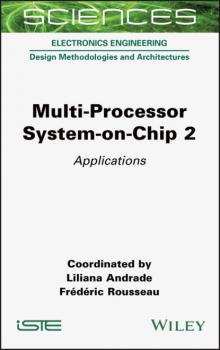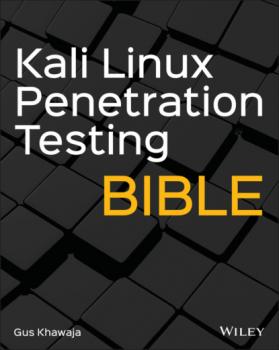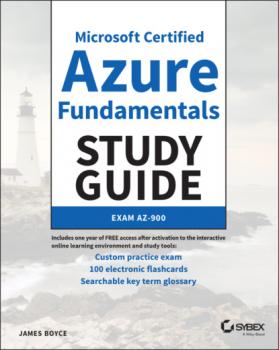Зарубежная компьютерная литература
Различные книги в жанре Зарубежная компьютерная литератураChance, Calculation and Life
Chance, Calculation and Life brings together 16 original papers from the colloquium of the same name, organized by the International Cultural Center of Cerisy in 2019. From mathematics to the humanities and biology, there are many concepts and questions related to chance. What are the different types of chance? Does chance correspond to a lack of knowledge about the causes of events, or is there a truly intrinsic and irreducible chance? Does chance preside over our decisions? Does it govern evolution? Is it at the origin of life? What part do chance and necessity play in biology? This book answers these fundamental questions by bringing together the clear and richly documented contributions of mathematicians, physicists, biologists and philosophers who make this book an incomparable tool for work and reflection.
Intelligent Network Management and Control
The management and control of networks can no longer be envisaged without the introduction of artificial intelligence at all stages. Intelligent Network Management and Control deals with topical issues related mainly to intelligent security of computer networks, deployment of security services in SDN (software-defined networking), optimization of networks using artificial intelligence techniques and multi-criteria optimization methods for selecting networks in a heterogeneous environment. This book also focuses on selecting cloud computing services, intelligent unloading of calculations in the context of mobile cloud computing, intelligent resource management in a smart grid-cloud system for better energy efficiency, new architectures for the Internet of Vehicles (IoV), the application of artificial intelligence in cognitive radio networks and intelligent radio input to meet the on-road communication needs of autonomous vehicles.
Notes of an IT Architect
In this book, the Chief Architect of the Department of Architecture and Management of Technical Architecture of the Cloud Native Competence Center of Sberbank shares the knowledge and experience with readers, accumulated in the development of their own and assessment of other people's architectures, providing a basis for professional and career growth.
Kali Linux Penetration Testing Bible
A comprehensive how-to pentest book, using the popular Kali Linux tools Kali is a popular Linux distribution used by security professionals and is becoming an important tool for daily use and for certifications. Penetration testers need to master Kali’s hundreds of tools for pentesting, digital forensics, and reverse engineering. Kali Linux Penetration Testing Bible is a hands-on guide for getting the most from Kali Linux for pentesting. This book is for working cybersecurity professionals in offensive, hands-on roles, including red teamers, white hat hackers, and ethical hackers. Defensive specialists will also find this book valuable, as they need to be familiar with the tools used by attackers. This is the most comprehensive pentesting book on the market, covering every aspect of the art and science of penetration testing. It covers topics like building a modern Dockerized environment, the basics of bash language in Linux, finding vulnerabilities in different ways, identifying false positives, and practical penetration testing workflows. You’ll also learn to automate penetration testing with Python and dive into advanced subjects like buffer overflow, privilege escalation, and beyond. Gain a thorough understanding of the hundreds of penetration testing tools available in Kali Linux Master the entire range of techniques for ethical hacking, so you can be more effective in your job and gain coveted certifications Learn how penetration testing works in practice and fill the gaps in your knowledge to become a pentesting expert Discover the tools and techniques that hackers use, so you can boost your network’s defenses For established penetration testers, this book fills all the practical gaps, so you have one complete resource that will help you as your career progresses. For newcomers to the field, Kali Linux Penetration Testing Bible is your best guide to how ethical hacking really works.
Microsoft Certified Azure Fundamentals Study Guide
Quickly preps technical and non-technical readers to pass the Microsoft AZ-900 certification exam Microsoft Certified Azure Fundamentals Study Guide: Exam AZ-900 is your complete resource for preparing for the AZ-900 exam. Microsoft Azure is a major component of Microsoft’s cloud computing model, enabling organizations to host their applications and related services in Microsoft’s data centers, eliminating the need for those organizations to purchase and manage their own computer hardware. In addition, serverless computing enables organizations to quickly and easily deploy data services without the need for servers, operating systems, and supporting systems. This book is targeted at anyone who is seeking AZ-900 certification or simply wants to understand the fundamentals of Microsoft Azure. Whatever your role in business or education, you will benefit from an understanding of Microsoft Azure fundamentals. Readers will also get one year of FREE access to Sybex’s superior online interactive learning environment and test bank, including hundreds of questions, a practice exam, electronic flashcards, and a glossary of key terms. This book will help you master the following topics covered in the AZ-900 certification exam: Cloud concepts Cloud types (Public, Private, Hybrid) Azure service types (IaaS, SaaS, PaaS) Core Azure services Security, compliance, privacy, and trust Azure pricing levels Legacy and modern lifecycles Growth in the cloud market continues to be very strong, and Microsoft is poised to see rapid and sustained growth in its cloud share. Written by a long-time Microsoft insider who helps customers move their workloads to and manage them in Azure on a daily basis, this book will help you break into the growing Azure space to take advantage of cloud technologies.









